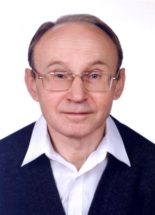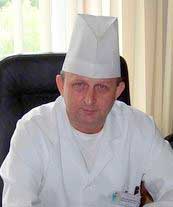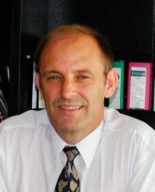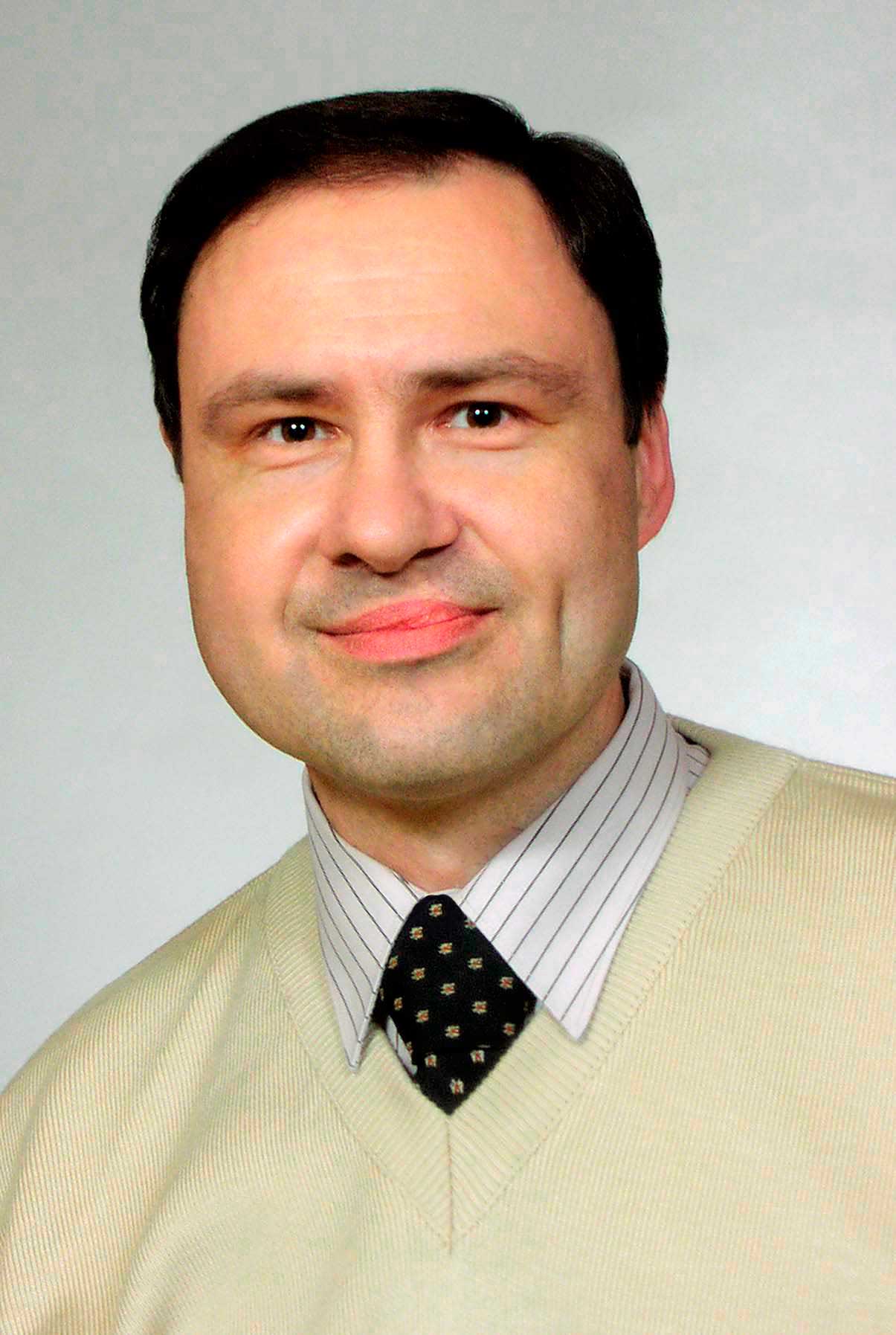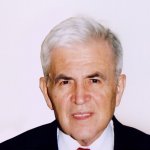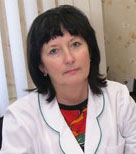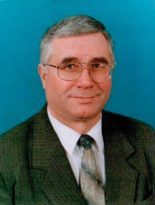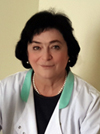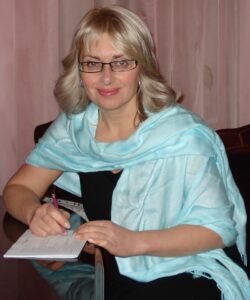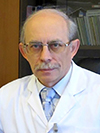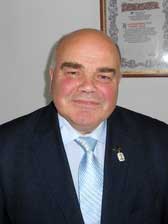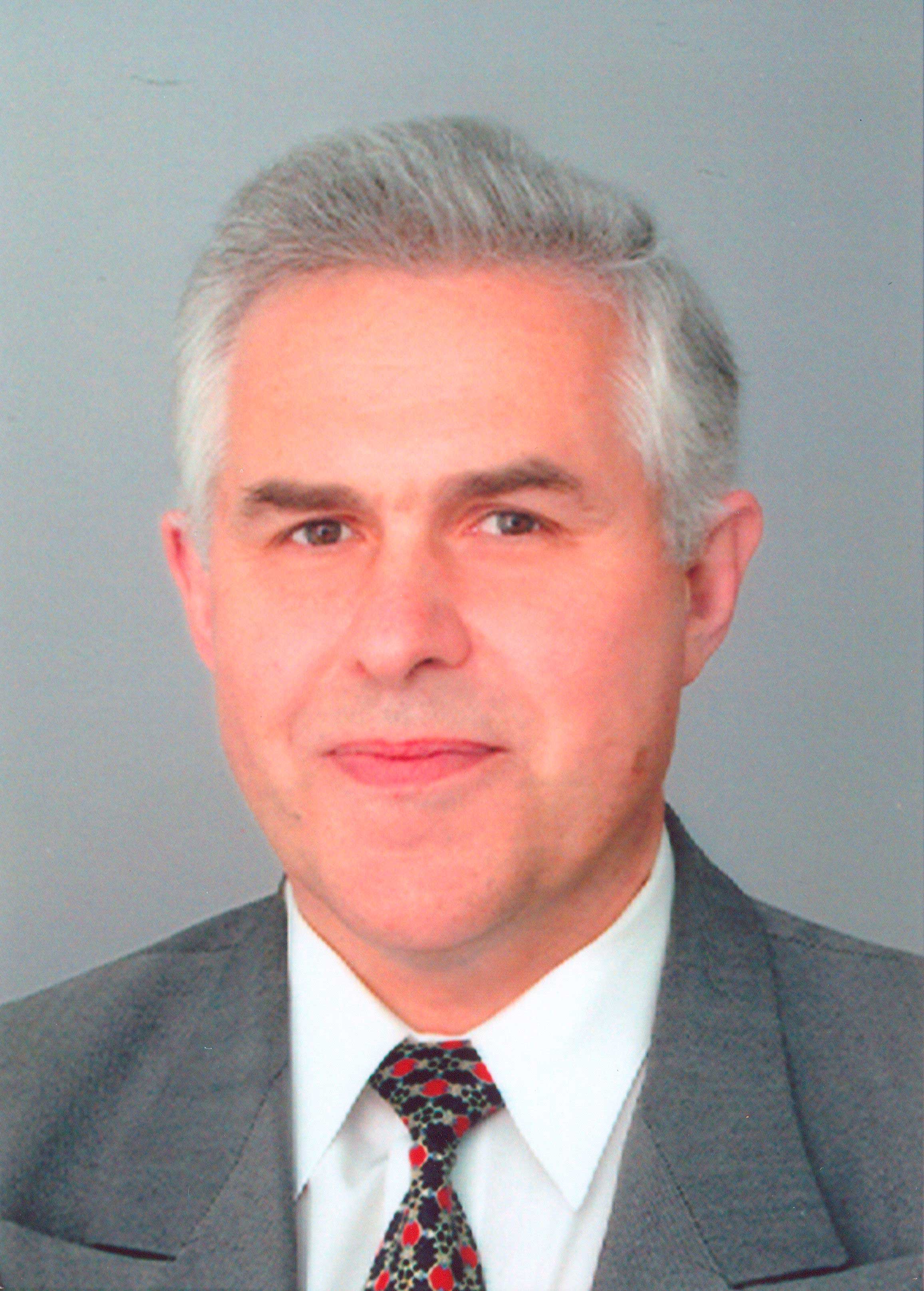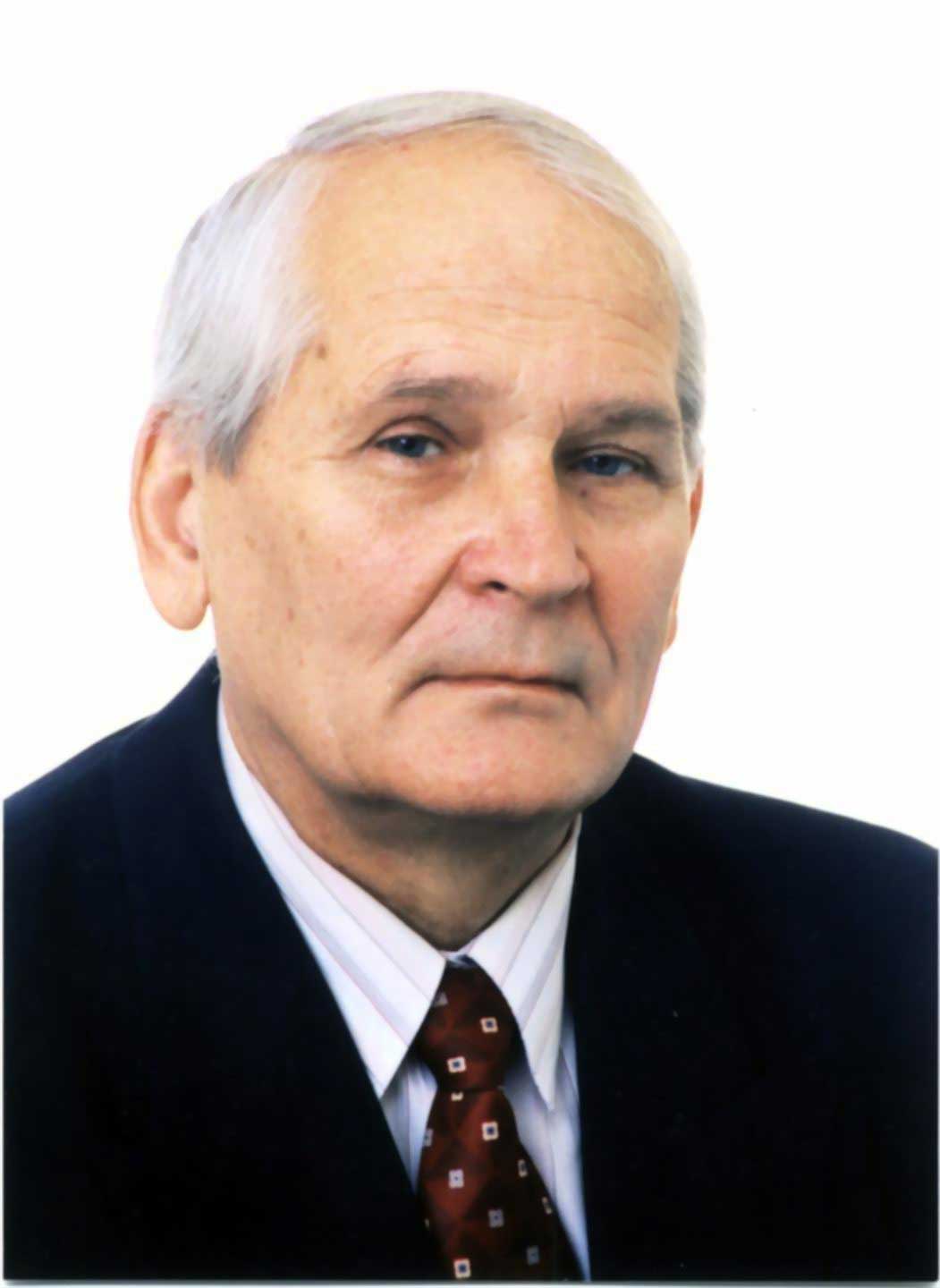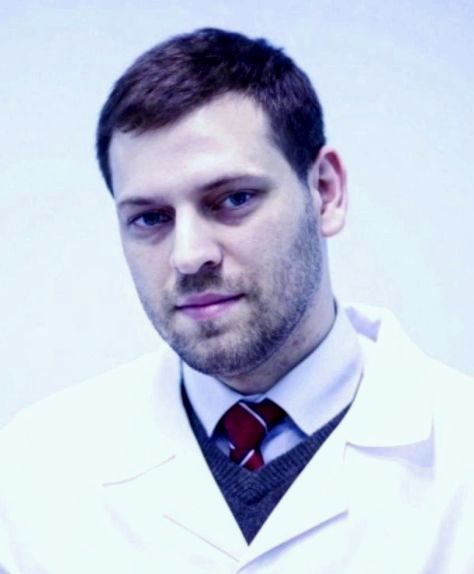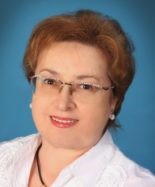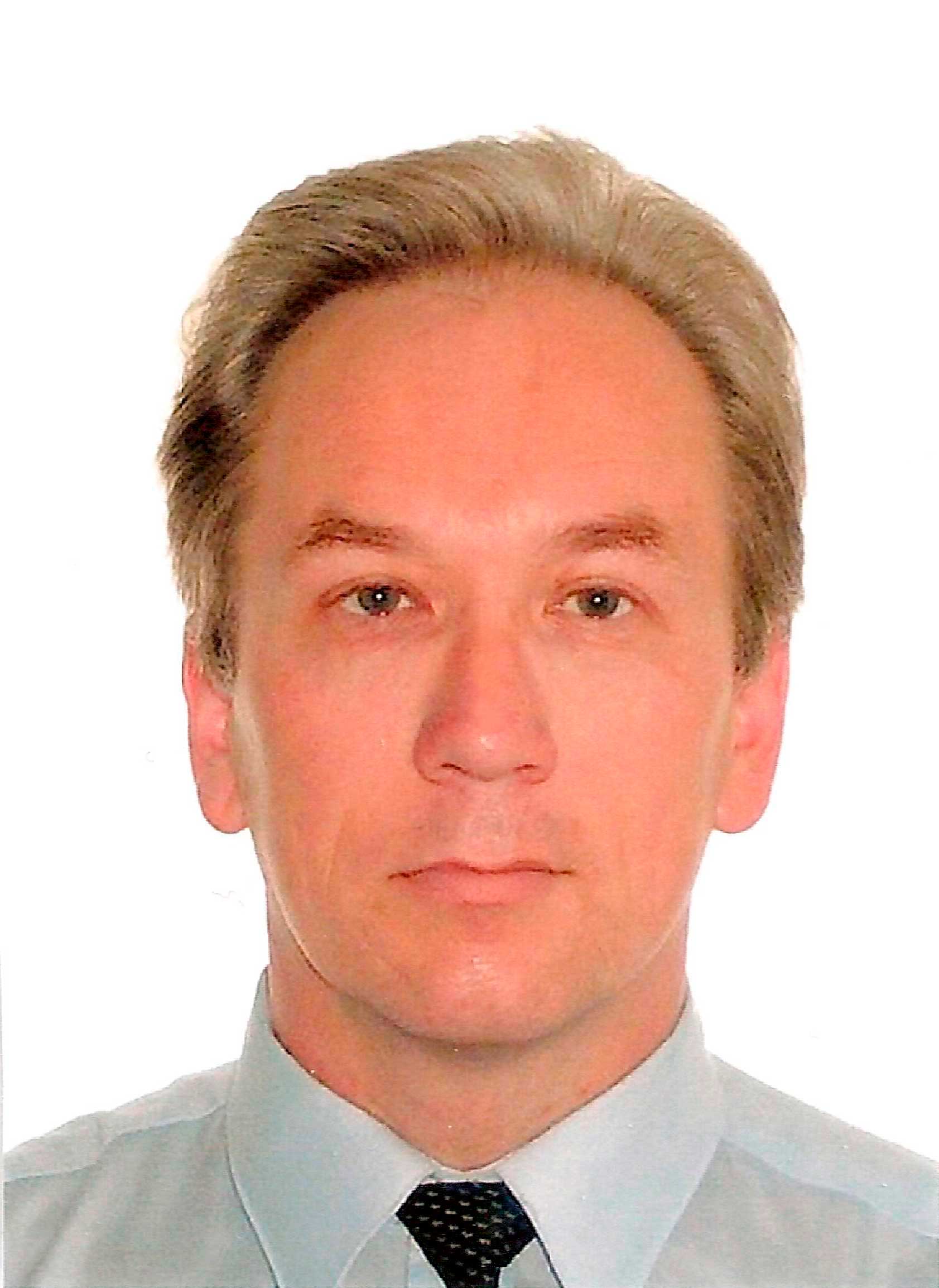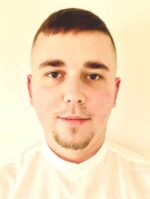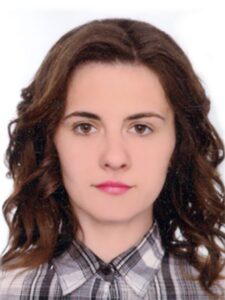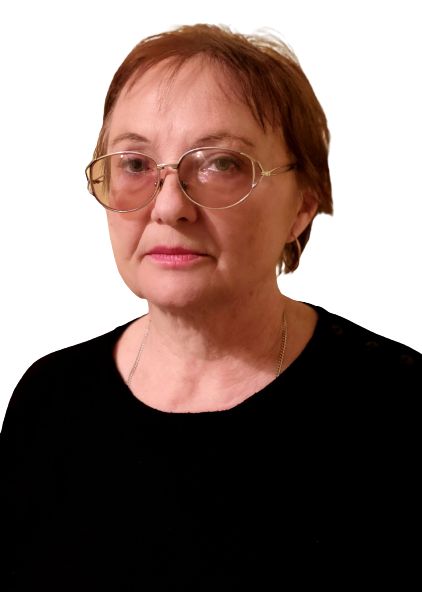Chief Editor
 Orest Abrahamovych – holder of Habilitation degree in Medicine, professor, head of the Chair of Internal Medicine No. 1 at Danylo Halytsky Lviv National Medical University; academician of the Higher School Academy of Ukraine, academician of the Ukrainian Academy of Information Sciences; doctor-internist of the highest qualification grade; Honored Doctor of Ukraine; Honored Professor at Danylo Halytsky Lviv National Medical University; member of the specialized academic council on “Internal diseases”, “Cardiology”; head of the task group “Internal Diseases”; co-chair of the Lviv Regional Association of Internists; vice-president of Lviv Regional Association of Gastroenterologists and Hepatologists; member of Taras Shevchenko Scientific Society; founder and chief editor of “Lviv Clinical Bulletin” Journal (Ukraine); member of the editorial board of the journals: Practitioner (Ukraine), Experimental and Clinical Medicine (Georgia), Ukrainian Therapeutic Journal (Ukraine), «Internal Medicine» (USA).
Orest Abrahamovych – holder of Habilitation degree in Medicine, professor, head of the Chair of Internal Medicine No. 1 at Danylo Halytsky Lviv National Medical University; academician of the Higher School Academy of Ukraine, academician of the Ukrainian Academy of Information Sciences; doctor-internist of the highest qualification grade; Honored Doctor of Ukraine; Honored Professor at Danylo Halytsky Lviv National Medical University; member of the specialized academic council on “Internal diseases”, “Cardiology”; head of the task group “Internal Diseases”; co-chair of the Lviv Regional Association of Internists; vice-president of Lviv Regional Association of Gastroenterologists and Hepatologists; member of Taras Shevchenko Scientific Society; founder and chief editor of “Lviv Clinical Bulletin” Journal (Ukraine); member of the editorial board of the journals: Practitioner (Ukraine), Experimental and Clinical Medicine (Georgia), Ukrainian Therapeutic Journal (Ukraine), «Internal Medicine» (USA).
Deputy Chief Editor:
 Ulyana Abrahamovych – holder of Habilitation degree in Medicine, professor of Danylo Halytsky Lviv National Medical University, general physician, rheumatologist of the highest qualification grade; Medical Director “Kalyna. Center of Modern Medicine”.
Ulyana Abrahamovych – holder of Habilitation degree in Medicine, professor of Danylo Halytsky Lviv National Medical University, general physician, rheumatologist of the highest qualification grade; Medical Director “Kalyna. Center of Modern Medicine”.

Leonid Markin – holder of Habilitation degree in Medicine, professor, corresponding member of the National Academy of Medical Sciences of Ukraine; obstetrician-gynecologist of the highest qualification grade; head of the Chair of Obstetrics and Gynecology at Danylo Halytsky Lviv National Medical University, Honored Professor of Danylo Halytsky Lviv National Medical University; Honored Scientist and Engineer of Ukraine.
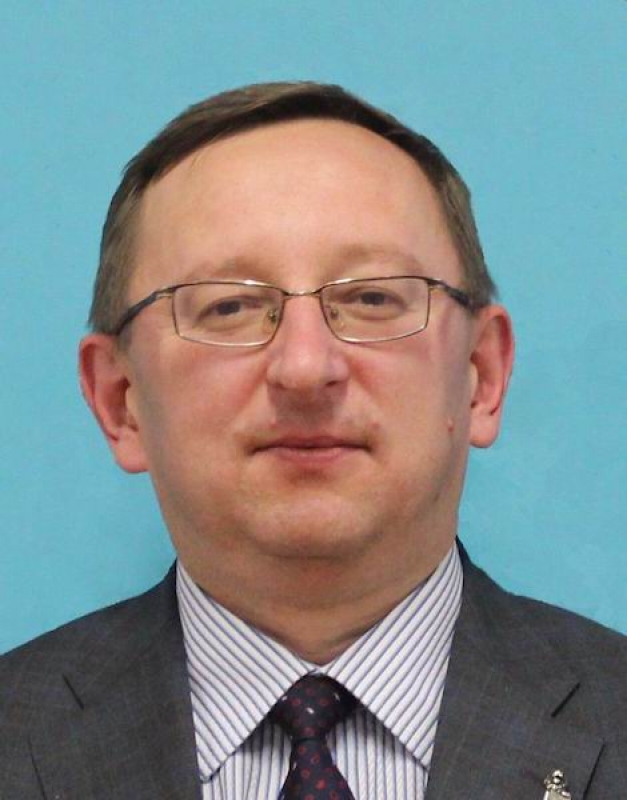 Roman Lesyk – is a professor of pharmaceutical/medicinal chemistry at Danylo Halytsky Lviv National Medical University. During 2004-2014 he occupied the Pharmaceutical Faculty dean’s position, whereas since 2015 he was a Head of the Department of Pharmaceutical, Organic and Bioorganic Chemistry. His research interests concern 4-azolidinone cores within structure-based drug design, especially in the area of medicinal chemistry of anticancer, anti-inflammatory, anticonvulsant, antimicrobial, antiviral, antitrypanosomal, and antimicrobial agents. Prof. Roman Lesyk is a Doctor honoris causa of the Poznan University of Medical Sciences (2019) and Laureate of the State Prize of Ukraine in Science and Technology (2019).
Roman Lesyk – is a professor of pharmaceutical/medicinal chemistry at Danylo Halytsky Lviv National Medical University. During 2004-2014 he occupied the Pharmaceutical Faculty dean’s position, whereas since 2015 he was a Head of the Department of Pharmaceutical, Organic and Bioorganic Chemistry. His research interests concern 4-azolidinone cores within structure-based drug design, especially in the area of medicinal chemistry of anticancer, anti-inflammatory, anticonvulsant, antimicrobial, antiviral, antitrypanosomal, and antimicrobial agents. Prof. Roman Lesyk is a Doctor honoris causa of the Poznan University of Medical Sciences (2019) and Laureate of the State Prize of Ukraine in Science and Technology (2019).
Science Editor
Oleksandr Lutsyk – holder of Habilitation degree in Medicine, professor, head of the Chair of Histology, Cytology and Embryology; winner of the State Prize of Ukraine in the field of science and technology.
Olena Radchenko – holder of Habilitation degree in Medicine, professor, head of the Chair of Internal Medicine No. 2 at Danylo Halytsky Lviv National Medical University, member of the Presidium of Society of Therapists of Ukraine, general physician of the highest qualification grade; member of the task group “Internal Diseases”, member of the specialized academic council on “Internal Diseases”, “Cardiology”.
Executive Editor
 Oksana Faiura – PhD, Associate Professor of the Department of Internal Medicine N 1, Danylo Halytsky Lviv National Medical University, MD, therapist.
Oksana Faiura – PhD, Associate Professor of the Department of Internal Medicine N 1, Danylo Halytsky Lviv National Medical University, MD, therapist.
Editorial team:
Mar’yana Abrahamovych – holder of Habilitation degree in Medicine, professor of the Chair of Family Medicine at Danylo Halytsky Lviv National Medical University; gastroenterologist, cardiologist, physician of the highest qualification grade.
Viktor Andryushchenko – holder of Habilitation degree in Medicine, professor; surgeon of the highest qualification grade; head of the Chair of General Surgery at Danylo Halytsky Lviv National Medical University; head of the profile methodical committee on surgical disciplines of Danylo Halytsky Lviv National Medical University; deputy chair of the Board of Association of Surgeons of Lviv Region; member of the Board of Association of Surgeons of Ukraine; member of the Medical Board of the Research and Methodological Council of the Ministry of Education and Science of Ukraine.
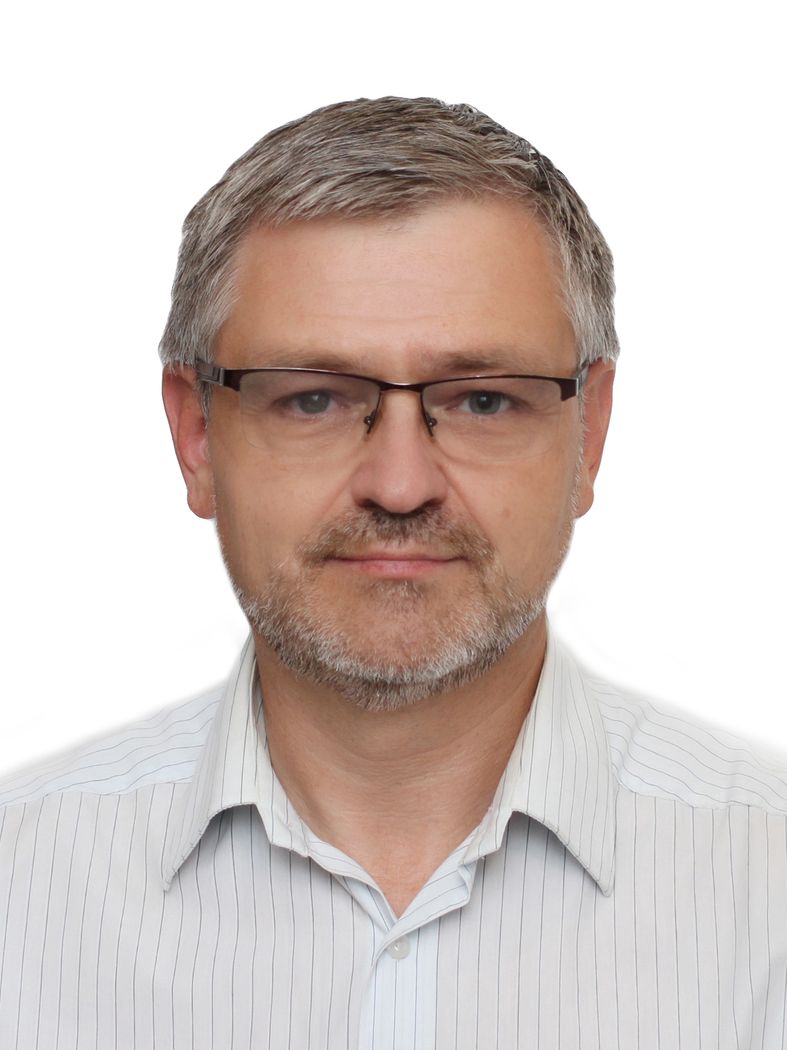 Andriy Bazylevych – Doctor of Medical Sciences, Professor of the Department of Propaedeutics of Internal medicine at Danylo Halytsky Lviv National University; Visiting Professor of Akademia Kaliska im. Prezydenta Stanisława Wojciechowskiego (Kalish, Poland), MD, cardiologist, therapist of the highest qualification category; health care organizer of the highest qualification category; member of the European Society of Cardiologists (ESC), President of the World Federation of Ukrainian Medical Societies (WFUMS), member of the board of the All-Ukrainian Medical Society (AUMS), member of the Taras Shevchenko Scientific Society; member of the editorial board of the journals: “Proceedings of the National Academy of Sciences. Medical Sciences” (Ukraine), “Journal of Health Inequalities” (Kalish, Poland), “European Journal of Medical Technology” (Lublin, Poland).
Andriy Bazylevych – Doctor of Medical Sciences, Professor of the Department of Propaedeutics of Internal medicine at Danylo Halytsky Lviv National University; Visiting Professor of Akademia Kaliska im. Prezydenta Stanisława Wojciechowskiego (Kalish, Poland), MD, cardiologist, therapist of the highest qualification category; health care organizer of the highest qualification category; member of the European Society of Cardiologists (ESC), President of the World Federation of Ukrainian Medical Societies (WFUMS), member of the board of the All-Ukrainian Medical Society (AUMS), member of the Taras Shevchenko Scientific Society; member of the editorial board of the journals: “Proceedings of the National Academy of Sciences. Medical Sciences” (Ukraine), “Journal of Health Inequalities” (Kalish, Poland), “European Journal of Medical Technology” (Lublin, Poland).
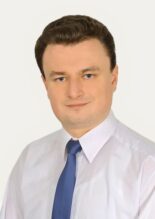 Rostyslav Bilyy – Professor, Dr.Sci, holds the position of professor at the Department of Histology, cytology and embryology, Lviv National Medical University (LNMU), Lviv, Ukraine, PI of EU Horizon2020 FET Open project NeutroCure. He is the author of ~200 research papers, among them 110 in peer-reviewed Scopus-indexed journals, including papers in Science, Nature Medicine, Immunity, Materialі Today. Co-author of 6 UA patents, 3 US patents, 5 PCT patent applications, 6 book chapters. H index – 32 (Google Scholar).
Rostyslav Bilyy – Professor, Dr.Sci, holds the position of professor at the Department of Histology, cytology and embryology, Lviv National Medical University (LNMU), Lviv, Ukraine, PI of EU Horizon2020 FET Open project NeutroCure. He is the author of ~200 research papers, among them 110 in peer-reviewed Scopus-indexed journals, including papers in Science, Nature Medicine, Immunity, Materialі Today. Co-author of 6 UA patents, 3 US patents, 5 PCT patent applications, 6 book chapters. H index – 32 (Google Scholar).
Ivan Chopey – holder of Habilitation degree in Medicine, professor, head of the Chair of Therapy and Family Medicine of the Uzhhorod National University, Honored Doctor of Ukraine, member of the editorial board of the journals “Family Medicine” and “Ukraine. Health of the Nation”, member of the editorial board of the journal “Wiadomości Lekarskie” of the Polish Medical Association, head of the specialized academic council on “Internal Diseases” at the Uzhhorod National University of the Ministry of Education and Science of Ukraine.

Valentyna Chopyak – holder of Habilitation degree in Medicine, professor, head of the Chair of Clinical Immunology and Allergology at Danylo Halytsky Lviv National Medical University; general physician, clinical immunologist, allergist, rheumatologist of the highest qualification grade; Honored Professor of Danylo Halytsky Lviv National Medical University; Honored Doctor of Ukraine; Head of the Task Group of the National Academy of Medical Sciences of Ukraine and the MOH of Ukraine in the fields of Clinical Immunology and Allergology; member of the specialized academic council of the National Institute of Phthisiology and Pulmonology named after F. G. Yanovsky on Pulmonology, Phthisiology, Clinical Allergology; Vice-President of the Ukrainian Society for Immunology, Allergology and Immunorehabilitation, head of the Regional Medical Center for Clinical Immunology and Allergology; member of the Central Formulary Committee of the Ministry of Health of Ukraine, member of the European Academy of Allergology and Clinical Immunology (EAACI), member of the World Allergy Organization (WAO), member of the World Immunopathology Organization (WIPO), member of the Polish Society of Immunology, member of the European Federation of Immunological Societies (EFIS), member of the European Association for Standardization (EASI); consultant of the State Expert Center of the MOH of Ukraine; chief editor of the collection “Topical Issues of Clinical Immunology and Allergology”; member of editorial teams and editorial boards of journals “Immunology and Allergology”, “Clinical Immunology, Allergology, Infectology”, “Asthma and Allergy”, “Therapia”, “CONSILIUM MEDICUM”.
Serhiy Chuklin – holder of Habilitation degree in Medicine, professor of the Chair of Surgery No. 1 of Danylo Halytsky Lviv National Medical University, winner of the State Prize of Ukraine in the field of science and technology; active member of the International Society of Surgery (national representative of Ukraine), International Association of Surgeons, Gastroenterologists and Oncologists, European Digestive Surgery, European Pancreatic Club, European Society for Clinical Investigation, International Ascites Club, International Association of Pancreatology, American Pancreatic Association, European-African Hepato-Pancreato-Biliary Association, Australasian Pancreatic Club; surgeon of the highest qualification grade.
Clifford Omer Rosendahl – MBBS, PhD, Associate Professor, Faculty of Medicine, University of Queensland, Australia; Distinguished Visiting Professor, School of Medicine, Tehran University of Medical Sciences, Iran; Member of Royal Australian College of General Practitioners, Australian Medical Association; Course Coordinator UQ Skin Cancer Program, University of Queensland, Australia; Supervisor of the undergraduate students, Medical School of Griffith University, Australia and University of Queensland, Australia; Founder and Director of Skin Cancer Audit Research Database (SCARD); Course Coordinator UQ Skin Cancer Program IMED7001: Core Knowledge and Professional Practice.
Vitaliy Denysiuk – holder of Habilitation degree in Medicine, professor, head of the Chair of Internal Medicine No. 3 of Vinnytsya National Pirogov Memorial Medical University; Academician of the Higher School Academy of Ukraine, academician of the New-York Academy of Sciences, academician of the Academy of Medical and Technical Sciences of Ukraine; general physician of the highest qualification grade; head of the Regional Association of Gerontology.
Halyna Fadeenko – Holder of Habilitation degree in Medicine, professor, director of the State Institution ” National institute of Therapy named after L. T. Malaya of NAMS of Ukraine”, member of the Presidium of the Board of Ukrainian Society of Therapists.
Tamara A. Giorgadze – MD, PhD, MIAC; Professor of Pathology; Director of Cytopathology; Director of Cytopathology Fellowship, Department of Pathology, Member of the Quality Assurance Committee, Program Evaluation Committee, Anatomic and Clinical Pathology Residency, Program Evaluation Committee, Cytopathology Fellowship, Medical College of Wisconsin, Milwaukee, WI, USA. Attending Physician at Froedtert Hospital/Medical College of Wisconsin, Milwaukee, WI, USA. Member of the United States and Canadian Academy of Pathology. Fellow Member of the College of American Pathologists. Fellow Member of the American Society of Clinical Pathology, Member of the American Society of Cytopathology. Elected Member of the International Academy of Cytology, Member of Membership Committee of the Papanicolaou Society of Cytopathology, Member of ASCP Education Work group, USA.
Ivan Katerynchuk – holder of Habilitation degree in Medicine, professor; head of the Chair of Internal Medicine No. 2 with occupational diseases of the Higher State Educational Institution of Ukraine “Ukrainian Medical Dentistry Academy”; physician-cardiologist of the highest qualification grade; head of the Poltava branch of the Ukrainian Association of Cardiology; head of the Poltava Regional Antihypertensive Club; member of the European Society of Cardiology; member of the Presidium of the Ukrainian Association of Gastroenterology; member of the Ukrainian Pancreatic Club; member of the German Association “Gastroliga”.
Natalia Kiladze (Tbilisi, Georgia) – holder of Doctoral degree in Medicine, professor at the Chair of Dermatology and Venereology of Tbilisi State Medical University. The head doctor of the Tbilisi Clinic “Mardzhani” – Dermatology, Dermato-Oncology and Aesthetic Medicine”. Consulting physician at the National Center for Clinical Immunology and AIDS.
Michał Lewandowicz – M. D., Ph. D., specialist in general surgery, senior assistant of Surgical Oncology at the Department of Surgical Oncology, Regional Oncology Center, co-founder and specialist of the Breast Cancer Unit at Regional Oncology Center, Copernicus Memorial Hospital, Lodz, Poland.
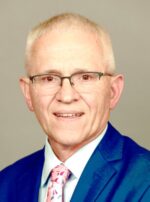 Vassyl Andrey Lonchyna – MD, Diplomate of The American Board of Thoracic Surgery, The American Board of Surgery and The American Board of Surgery – Surgical Critical Care. After a career in cardiothoracic surgery, including transplantation and mechanical assist devices, worked in the Cardiothoracic Intensive Care Unit at the University of Chicago and is now retired from clinical practice. Following a Fellowship at the MacLean Center of Medical Ethics (University of Chicago), lectures on Clinical Medical Ethics (Ukrainian Catholic University) and edits books (newest “Difficult Decisions in Surgical Ethics” Springer, 2021). Was a Fulbright US Scholar in Ukraine in 2016/7 researching medical education.
Vassyl Andrey Lonchyna – MD, Diplomate of The American Board of Thoracic Surgery, The American Board of Surgery and The American Board of Surgery – Surgical Critical Care. After a career in cardiothoracic surgery, including transplantation and mechanical assist devices, worked in the Cardiothoracic Intensive Care Unit at the University of Chicago and is now retired from clinical practice. Following a Fellowship at the MacLean Center of Medical Ethics (University of Chicago), lectures on Clinical Medical Ethics (Ukrainian Catholic University) and edits books (newest “Difficult Decisions in Surgical Ethics” Springer, 2021). Was a Fulbright US Scholar in Ukraine in 2016/7 researching medical education.
Tetyana Nehrych – holder of Habilitation degree in Medicine,professor, head of the Chair of Neurology at Danylo Halytsky Lviv National Medical University; head of the Center for International Relations and Eurointegration of the LNMU named after Danylo Halytsky; Member of the Board of the Society of Neurologists, Psychiatrists and Narcologists of Ukraine; Member of the editorial board of the “Ukrainian Neurological Journal”, “International Neurological Journal”, “Medical Sciences: Proceedings of the Taras Shevchenko Scientific Society”, “Acta Medica Leopoliensia”, “Ukrainian Bulletin of Psychoneurology”, Member of the Ethics Commission of the Danylo Halytsky Lviv National Medical University and Lviv Regional Clinical Hospital, Member of the Shevchenko Scientific Society of the Danylo Halytsky Lviv National Medical University, Member of EAN, Member of ESO, Member of the American Academy of Neurology, Expert of the Department of Healthcare of the Lviv State Administration, Expert of the Ministry of Healthcare in neurology, pediatric neurology, neurosurgery, pediatric neurosurgery.
Serhiy Nyankovskyy – holder of Habilitation degree in Medicine, professor; head of the Chair of Pediatrics of Danylo Halytsky Lviv National Medical University; pediatrician of the highest qualification grade; member of the European Childhood Obesity Group; member of the European Society Pediatric Research.
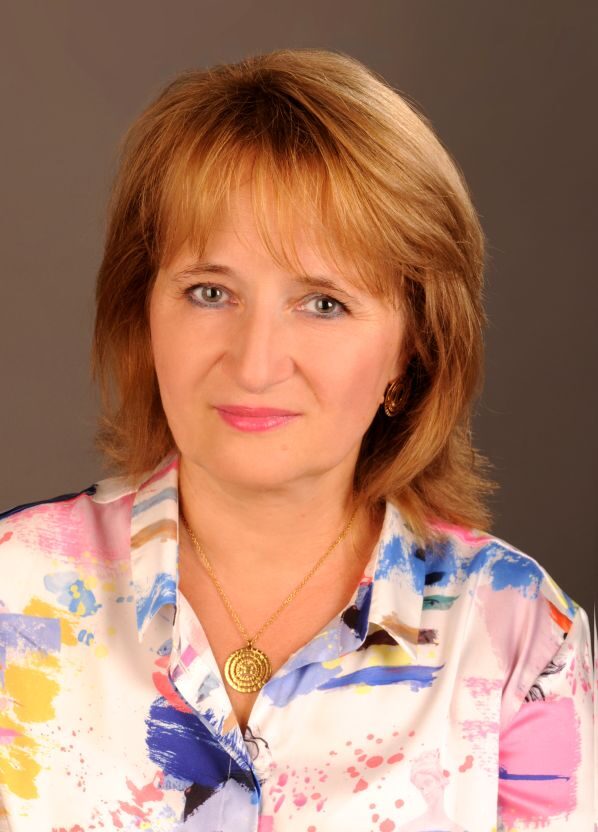 Anzhelika Payenok – Holder of Habilitation degree in Medicine, Professor, Academician of the National Academy of Sciences of Higher Education of Ukraine, Head of the Department of Neuropathology and Neurosurgery of the Faculty of Postgraduate Education of Danylo Halytsky Lviv National Medical University.
Anzhelika Payenok – Holder of Habilitation degree in Medicine, Professor, Academician of the National Academy of Sciences of Higher Education of Ukraine, Head of the Department of Neuropathology and Neurosurgery of the Faculty of Postgraduate Education of Danylo Halytsky Lviv National Medical University.
Robert A. Schwartz – MD, MPH, DSc (Hon), FRCP Edin, FAAD, FAADV (Hon), Professor & Head, Dermatology; Professor of Medicine, Pediatrics and Pathology, Rutgers New Jersey Medical School; Board of Directors, International Society of Dermatology; Honorary Professor, China Medical University; Honorary Member, 23 foreign dermatology societies: Ukraine, Italy, Czech, Poland, Bulgaria, Lithuania, Georgia, Latvia, Slovenia, Slovakia, Iran, Korea, Germany, Vietnam, etc, author/coauthor 5 books, 320 book chapters, 580 articles, 250 abstracts.
Oleksandr Serhiyenko – holder of Habilitation degree in Medicine, professor of the Chair of Endocrinology at Danylo Halytsky Lviv National Medical University, endocrinologist of the highest qualification grade; member of the Presidium of the Association of Endocrinologists of Ukraine, member of the European Society of Endocrinology, member of the European Association for the Study of Diabetes, member of the European Association “Diabetes and Cardiovascular Diseases”.
Mykola Shved – holder of Habilitation degree in Medicine, professor; head of the Chair of Internal Medicine No. 1 of I. Horbachevsky Ternopil State Medical University; general physician, cardiologist of the highest qualification grade; Honored Scientist and Engineer of Ukraine, member of the specialized academic council on “Internal Diseases”, “Cardiology”; member of the Presidium of the Association of Cardiologists and Arrhythmologists of Ukraine; member of the editorial teams and editorial boards of the journals “Galician Medical Bulletin”, “Ukrainian Journal of Cardiology”.
Yevhen Sklyarov – holder of Habilitation degree in Medicine, professor, head of the Chair of Therapy and Medical Diagnostics No.1 of the Postgraduate Education Faculty, Danylo Halytsky Lviv National Medical University, general physician of the highest qualification grade; Honored Doctor of Ukraine; member of the task group “Internal Diseases”; member of the specialized academic council on “Internal Diseases”, “Cardiology”.
Mykola Stanislavchuk – holder of Habilitation degree in Medicine, professor, head of the Chair of Internal Medicine No. 1 of Vinnytsya National Pirogov Memorial Medical University, general physician-rheumatologist of the highest qualification grade.
Editorial Board:
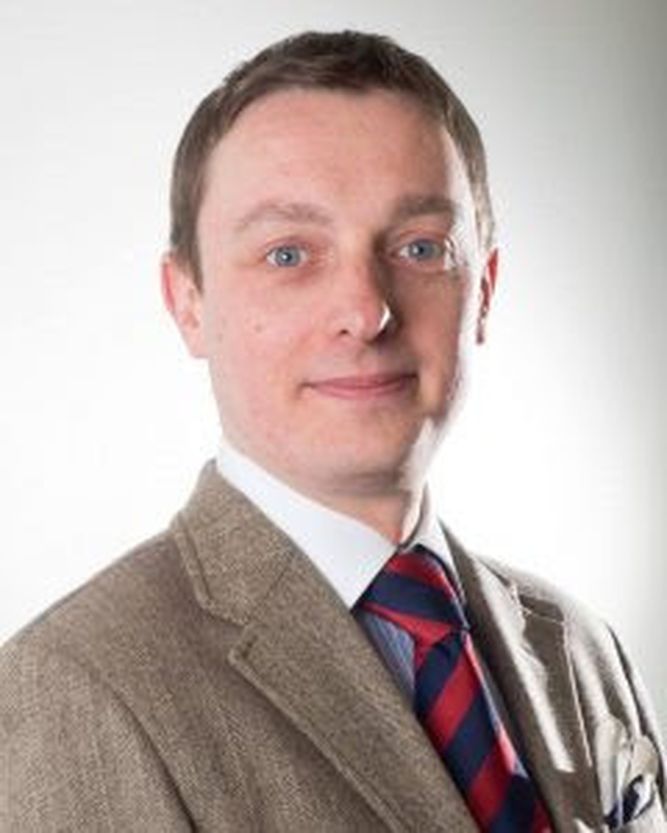 Roman Cregg – Dr, MBBS FRCA FFPMRCA PhD, Consultant in Pain Medicine, National Hospital for Neurology and Neurosurgery, Honorary Associate Professor, Department for Targeted Interventions, Division of Surgery and Interventional Science, University College London, Principal Investigator, Institute of Neurology, University College London, Director, MSc Pain Management, Division of Surgery, University College London.
Roman Cregg – Dr, MBBS FRCA FFPMRCA PhD, Consultant in Pain Medicine, National Hospital for Neurology and Neurosurgery, Honorary Associate Professor, Department for Targeted Interventions, Division of Surgery and Interventional Science, University College London, Principal Investigator, Institute of Neurology, University College London, Director, MSc Pain Management, Division of Surgery, University College London.
Roman Dutka – holder of Habilitation degree in Medicine, professor; general physician of the highest qualification grade; head of the Chair of Propaedeutics of Internal Medicine No. 1 of Danylo Halytsky Lviv National Medical University; Honored Doctor of Ukraine; member of the Association of Internists of Ukraine; member of the specialized academic council on “Internal Diseases”, “Cardiology”; member of the task group “Internal Diseases”.
Taras Gutor – PhD, Associate Professor; Head of the Department of Social Medicine, Economics and Organization Health Care of Danylo Halytsky Lviv National Medical University; Head of the Biostatistics Center of Danylo Halytsky Lviv National Medical University; member of the Public Health Society of Lviv region; member of the American Statistical Association.
Taras Hanych – holder of Habilitation degree in Medicine, professor; head of the Chair of Intermediate Level Therapy of Uzhhorod National University; general physician of the highest qualification grade; member of the specialized academic council on “Internal Diseases”, “Cardiology” of Danylo Halytsky Lviv National Medical University.
Oleg Hnateyko – holder of Habilitation degree in medicine, professor of the Chair of Propaedeutic Pediatrics and Medical Genetics at Danylo Halytsky Lviv National Medical University, academician of the Higher School Academy of Ukraine; pediatrician-geneticist of the highest qualification grade; Honored Professor of Danylo Halytsky Lviv National Medical University; Honored Scientist and Engineer of Ukraine; winner of the State Prize of Ukraine in the field of science and technology; director of the State Institution “Institute of Hereditary Pathology of National Academy of Medical Sciences of Ukraine”; head of the scientific society of medical geneticist of Ukraine and Lviv branch of the Association of Pediatricians of Ukraine; member of the Medical Commission of the Polish Academy of Sciences, European Society of Human Genetics; member of the editorial board of journals “Pediatrics, Obstetrics and Gynecology”, “Problems of Clinical Pediatrics”.
Oleg Korkushko – holder of Habilitation degree in Medicine, professor, academician of the National Academy of Medical Sciences of Ukraine, corresponding member of the National Academy of Sciences of Ukraine, corresponding member of the Russian AMS; head of the Department of Clinical Physiology and Pathology of Internal Organs, head of the sector of Clinical Gerontology of the State Institution “D. F. Chebotarev State Institute of Gerontology of the NAMS of Ukraine”; Honored Scientist and Engineer of Ukraine; winner of the State Prize of Ukraine; winner of the S. P. Botkin Award of the RAMS; winner of the M. D. Strazhesko Award of the National Academy of Sciences of Ukraine; winner of the D. F. Chebotarev Award of the National Academy of Sciences of Ukraine.
 Pavlo Kravchun – Honored Professor of KhNMU, Member of Academy of Sciences of Higher Education of Ukraine, Honored worker of science and technology of Ukraine, M.D., PhD, Professor; Head of Department of Internal Medicine N 2, Clinical Immunology and Allergology of Kharkiv National Medical University.
Pavlo Kravchun – Honored Professor of KhNMU, Member of Academy of Sciences of Higher Education of Ukraine, Honored worker of science and technology of Ukraine, M.D., PhD, Professor; Head of Department of Internal Medicine N 2, Clinical Immunology and Allergology of Kharkiv National Medical University.
Burkhard Leeb (Vienna, Austria) – holder of Habilitation degree in Medicine, Doctor of Philosophy, 2nd Department of Medicine, Lower Austrian Center for Rheumatology; Lower Austrian State Hospital Weinviertel, Stockerau; Karl Landsteiner Institute for Clinical Rheumatology, Stockerau, Austria; Medical University of Graz, Austria.
Walter Maksymovych (Alberta, Canada) – Professor in the Department of Medicine, Division of Rheumatology at the University of Alberta.
Oleksandr Nadraga – holder of Habilitation degree in Medicine, professor; head of the Chair of Children’s Infectious Diseases at Danylo Halytsky Lviv National Medical University; pediatrician of the highest qualification grade; member of the European Society for Pediatric Infectious Diseases (ESPID).
Vasyl Novak – holder of Habilitation degree in Medicine, professor of the Chair of Hematology and Transfusion at Danylo Halytsky Lviv National Medical University, director of PE “Institute of Blood Pathology and Transfusion Medicine of NAMS of Ukraine”, Chief hematologist and transfusiologist of the MOH and NAMS of Ukraine, academician of the Higher School Academy of Ukraine; hematologist of the highest qualification grade; organizer and co-coordinator of the European School of Transfusion Medicine, member of the Society of Hematology (European, USA), deputy head of the Ukrainian and head of the Lviv Regional Scientific Society of Hematology and Transfusiology; member of the Central Attestation Commission of the Ministry of Health of Ukraine, member of the specialized academic council of the PE “Institute of Blood Pathology and Transfusion Medicine of NAMS of Ukraine”.
Paweł Pietkiewicz – Doctor of Medical Sciences, specialist in dermatology and venereology, Fellow of European Board of Dermatology-Venereology, Polish Society for Dermatology, European Academy for Dermatology and Venereology, European Association for Cancer Research, International Dermoscopy Society, New York Academy of Sciences, European Association of Dermato-Oncology, European Society for Lasers and Energy Based Devices, Polish Society for Allergic Diseases, founder of the Polish Dermatoscopic Group.
Vasyl Prysyazhnyuk – Doctor of Medical Science, Associate Professor of the Department of Propedeutics of Internal Diseases of the Higher State Educational Institution of Ukraine “Bukovinian State Medical University”; Member of European Association for the Study of the Liver (EASL), Ukrainian Gastroenterology Association.
 Judith Sautner (Vienna, Austria) – holder of Habilitation degree in Medicine, 2nd Department of Medicine, Lower Austrian Center for Rheumatology; Lower Austrian State Hospital Weinviertel, Stockerau; Karl Landsteiner Institute for Clinical Rheumatology, Stockerau, Austria.
Judith Sautner (Vienna, Austria) – holder of Habilitation degree in Medicine, 2nd Department of Medicine, Lower Austrian Center for Rheumatology; Lower Austrian State Hospital Weinviertel, Stockerau; Karl Landsteiner Institute for Clinical Rheumatology, Stockerau, Austria.
Ihor Vakaliuk – Doctor of Medicine, Professor of the Сhair of Internal Medicine № 2 and Nursing; Pro-rector for Research Ivano-Frankivsk National Medical University.
Olena Voloshyna – Holder of Habilitation degree in Medicine, Professor, Head of the Chair of General Practice at Odessa National Medical University.
 Andriy Yahenskiy – holder of Habilitation degree in Medicine, professor of the Chair of Family Medicine of the Faculty of Postgraduate Education at Danylo Halytsky Lviv National Medical University, member of the European Society of Cardiology; cardiologist of the highest qualification grade, member of the specialized academic council on “Internal Diseases”, “Cardiology” of Danylo Halytsky Lviv National Medical University.
Andriy Yahenskiy – holder of Habilitation degree in Medicine, professor of the Chair of Family Medicine of the Faculty of Postgraduate Education at Danylo Halytsky Lviv National Medical University, member of the European Society of Cardiology; cardiologist of the highest qualification grade, member of the specialized academic council on “Internal Diseases”, “Cardiology” of Danylo Halytsky Lviv National Medical University.
Oleksandr Zinchuk – holder of Habilitation degree in Medicine, professor, head of the Chair of Infectious Diseases at Danylo Halytsky Lviv National Medical University, head of the Lviv Regional Scientific and Practical Society of Infectious Disease Physicians, head of the task group “Internal Diseases”, infectious disease physician of the highest qualification grade.
Project Manager
Commercial Director
Literary editor
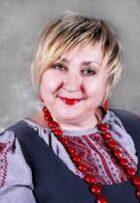 Prof. Tetiana Yeshchenko (Ukrainian)
Prof. Tetiana Yeshchenko (Ukrainian)
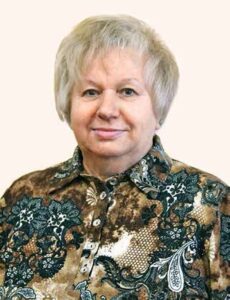 Prof. Iryna Kochan (Ukrainian)
Prof. Iryna Kochan (Ukrainian)
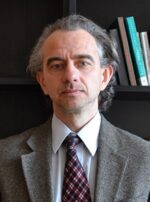 Prof. Pavlo Sodomora (English)
Prof. Pavlo Sodomora (English)
Learding IT-specialist
Pavlo Pavliv
Computer typesetting
Moderator
Yuriy Skakun (IT)
Correction
Olha Trostianchyn
“Lviv Clinical Bulletin” and its publisher “Kyrylytsya” follows the Code of Conduct and Best Practice Guidelines for Journal Editors and the Code of Conduct for Journal Publishers developed by the Committee on Publication Ethics (COPE).
Authors, reviewers and editors follow the International Committee of Medical Journal’s Editors (ICMJE’s) Recommendations for the Conduct, Reporting, Editing and Publication of Scholarly Work in Medical Journals.
Below are some key points from the documents listed above:
1. Duties of Editors:
1.1. Basic principles
The editorial board and council should be composed of experts competent in certain fields. The Editor-in-Chief has to submit their full names and affiliations, as well as to update the contact information on the journal’s website;
1.2. “Fair play” and editorial independence
The editors are required to evaluate the received manuscripts exclusively on the basis of their academic merit (importance, originality, validity of the research, clarity of the data) and its relevance to the scope of the journal, regardless of the authors’ race, gender, sexual orientation, citizenship, ethnic origin, religious beliefs, institutional affiliation or political philosophy. Decisions on editing and publishing are not defined by the policy of governments or by any other agencies outside of the journal. The Editor-in-Chief makes the final decision on the editing the journal and terms of publication;
1.3. Confidentiality
The editors and editorial staff will not disclose any information about the received manuscript to anyone other than the author, reviewers, potential reviewers, other editorial advisers, and publisher;
1.4. Disclosure and conflict of interest
Editors and editorial staff are not able to use the unpublished information disclosed in a submitted manuscripts for their own research purposes without the written consent of the authors. Privileged information or ideas received by the editors as a result of manuscript processing would be confidential and would not be used for personal gain. Editors should decline the manuscript’s review in which they have conflicts of interest in the accordance with competitive, collaborative or other connections, in particular, relationships with any of the authors, companies or institutions associated with the received article; in these cases, it is needed to ask for the help of another member of the editorial board to handle the manuscript;
1.5. Publication decisions
The editors ensure that all the manuscripts submitted for the publication need to be reviewed by the experts (at least two reviewers who are experts in this field). The Editor-in-Chief is responsible for selecting the manuscripts that will be published based on the importance of work for the researchers and readers, comments of the reviewers, and legal claims regarding defamation, copyright infringement, and plagiarism. The Editor-in-Chief may provide support to other editors or reviewers in making this decision;
1.6. Involvement and collaboration in investigations
Editors (together with the publisher and/or members of the society) must take appropriate measures when the ethical issues regarding the received manuscript or published document arise. Any report about the unethical publishing behaviour should be considered, even if it appears in years after the publication. “Lviv Clinical Bulletin” editors follows the COPE Flowcharts when considering suspicions of misconduct. If, during the investigation, an ethical problem is found to be reasonable, a correction, retraction, expression of concern or other note that may be relevant will be published in the journal.
2. Duties of Reviewers:
2.1. Review procedure
All articles received by the editors of the journal will be the subject of an open peer review (Review-form). The article will be first evaluated by the Editor-in-Chief on the subject of its relevance to the scope of the journal, as well as its quality. If everything goes well, the article will be sent to the reviewers (two competent in this area experts). Reviewers will classify the manuscript into the one of the four categories – accept with minor changes, accept subject to revision, as noted in comments, reject in current form, but may be resubmitted, reject, with no resubmission.
The reviewers’ opinion, as a rule, contains recommendations for improving the manuscript and is provided to the authors. Rejected articles will not be reviewed again.
2.2. Contribution to editorial decisions
The experts’ peer review based on volunteerism helps the editors to make the decisions, and through the editorial communications with authors may help them in improving their manuscripts. Peer review is an important component of formal scientific communication and is at the core of scientific activity. “Lviv Clinical Bulletin” shares the opinion of many that all scientists who want to contribute to the scientific process, are obliged to conduct a fair share of reviewing.
2.3. Promptness
If an expert who is invited to review the manuscript does not feel qualified to review the presented research or knows that his prompt review (for a maximum of 3 weeks) will not be possible, he should immediately notify the editors and decline the review request to allow the editors to invite the alternatives experts
2.4. Confidentiality
Any manuscript received for consideration is a confidential document and should be treated as such; they must not be disclosed or discussed with others, except when permitted by the Editor-in-Chief (who will do so only in exceptional and specific circumstances). This also applies to invited reviewers who decline the invitation to review;
2.5. Standards of objectivity
The reviews should be carried out objectively, and the comments should be formulated clearly, with accompanying arguments, so that the authors could use them to improve the manuscript. Personal criticism of the authors is unacceptable;
2.6. Acknowledgement of sources
Reviewers should identify the relevant published works that are not mentioned or cited by the author (-s). Any statement, which is observation, conclusion or argument, which was reported in previous publications, must be accompanied by an appropriate citation. The reviewer must also inform the editors of any significant similarity or coincidence between the reviewed manuscript and any other manuscript (published or unpublished) on which he has personal knowledge;
2.7. Disclosure and conflict of interest
Any reviewer who has conflicts of interest in accordance with competitive, cooperative or other relationships or relationships with any of the authors, companies or institutions associated with the manuscript and the work described therein must immediately notify editors to declare a conflict of interest and decline the review invitation so that the editors could invite the alternative experts.
Unpublished material disclosed in the manuscript, submitted to the journal, should not be used in a reviewer’s own work without the written consent of the authors. Privileged information or ideas obtained through an expert review should remain confidential and not be used for the personal benefit of the reviewer. This applies also to reviewers who decline the invitation to review.
3. Duties of Authors:
3.1. Reporting Standards
The authors of the original research should provide an accurate information about the performed work and its results, and then participate in an objective discussion of its importance. The manuscript must contain enough details and references to allow others to repeat the work. The review of the articles should be accurate, objective and comprehensive, while the “editorial opinion” or the plans for the future should be clearly defined as such. Fraudulent or deliberately inaccurate statements are unethical behavior and are inappropriate. Authors are also responsible for linguistically editing an article before it is sent to the editors’ office;
3.2. Data access and retention
If necessary, authors must provide the original documentation on their research, along with a manuscript for an editorial review. Authors should be ready to make this information public, if possible. In either case, the authors should ensure that such information will be available to other competent professionals for at least 10 years after publication (preferably via an institutional or subject-based data repository or other data centre), provided that the confidentiality of the participants can be preserved and the legal rights concerning proprietary data do not preclude their publication;
3.3. Originality and plagiarism
Authors should make sure that they have written and submitted only fully original materials, and if they used the work, such as drawings, tables, and/or other people’s words, they were properly marked. Also, the publications that influenced the topic of the article should be mentioned.
Plagiarism can take many forms, from the “presentation” of another article as the author’s own, to copying or paraphrasing the significant parts of another document (without attribution), to claiming the research results conducted by others. Plagiarism in all its forms is an unethical behavior of the author (-s) and is unacceptable.
The journal “Lviv Clinical Bulletin” reserves the right to use software* for detecting plagiarism in the received documents and to make them public at any time.
*Automatic checking of scientific texts is held using AntiPlagiarism.NET (the program is intended for checking of written texts, all pages of the necessary site and conducting the batch checking of all files from a folder), Viper (with the help of the program the text on many websites and in the press, which is published on the Internet can be checked. Search for a plug-in can also be done on the local disk of the computer, as well as the program can check two documents simultaneously and determine their level of similarity) and Advego Plagiatus programs (the program is intended to search for full or partial copies of text documents in Internet. It shows the degree of uniqueness of the text, the source of the text, the percentage of coincidence of the text, checks the uniqueness of the specified URL)** (responsible person – A. R. Vergun, PhD., Associate Professor of the Department of Family Medicine of Danylo Halytsky Lviv National Medical University).
**Software for checking the scientific texts on plagiarism: information review / authors-compilers: A.R. Vergun, L.V. Savenkov, S.O. Chukanov; The editorial board: V. S. Pashkova, O. Voskoboynikova-Guzeva, Ya. E. Soshynska; Ukrainian Library Association. Kyiv: UBA, 2016. Electron. ed. 1 electron. optical disk (CD-ROM). 36 p.
3.4. Multiple, duplicate, redundant or concurrent submission/publication
Articles that describes, essentially, the same research, should not be published in more than one journal. Consequently, authors should not submit for consideration a manuscript that has already been published in another journal. The submission of the manuscript simultaneously to more than one journal is an unethical behavior of the author (-s) and is unacceptable.
The publication of some kinds of articles (such as clinical guidelines, translations) in several journals is sometimes justified, provided that certain conditions are met. The authors and editors of the relevant journals must agree to re-publish the work, in case of displaying and interpretation the same information. The original document must be mentioned in the secondary publication;
3.5. Authorship of the manuscript
Only persons who meet these authorship criteria should be included in the list of authors of the manuscript, in order from the biggest to the smallest contribution of each of the authors to the work, which must take public responsibility for the information provided in it. Criteria for authors’ contributing: (i) made the significant contribution to the concept, design, execution, receipt of information or analysis/interpretation of the study; and (ii) drafted the manuscripts or revised it critically for the presence of important intellectual content; and (iii) have seen and approved the final version of the article and agreed to its submission for the publication. Anyone who has made a significant contribution to the work reported in the manuscript (for example, technical assistance, writing and editing assistance, general support) but which does not meet the criteria of authorship, should not be registered as authors but should be specified in sections “Acknowledgements” after their written permission. The appropriate author should ensure that all relevant co-authors (in accordance with the above mentioned definition) and no inappropriate co-authors are included in the list of authors and make sure that all co-authors have seen and approved the final version of the manuscript and agreed to its submission for the publication;
3.6. Disclosure and conflict of interest
Authors should, as a rule, at the earliest possible stage (by the way of presenting the form of disclosure during the submission and inclusion the statement in the manuscript), disclose any conflicts of interest that may be interpreted as affecting the results or their interpretation in the manuscript. Examples of potential conflicts of interest that need to be disclosed include financial issues such as honoraria, educational grants or other funding, participation in speakers’ bureaus, membership, employment, consultancies, stock ownership, or other equity interest, and paid expert testimony or patent-licensing arrangements, as well as non-financial issues such as personal or professional relationships, affiliations, knowledge or beliefs in a particular area or materials discussed in the manuscript. All sources of financial support for work must be disclosed (including the number of the grant or other reference number, if any);
3.7. Acknowledgement of sources
Authors should ensure that they have properly acknowledged the work of others, as well as references to publications that have influenced the topic of the submitted work. Information received privately (in conversation, correspondence or during discussions with third parties) should not be used or reported without the written permission. Authors should not use the information obtained through the provision of confidential services, such as manuscript reviews or grant applications, unless they have received a clear written permission from the author (-s) of work (-s) involved in these services;
3.8. Hazards and human or animal subjects
If the work involves the use of chemicals, procedures or equipment the use of which may be dangerous, the authors should clearly indicate this in the manuscript. If the work involves the use of animals or human involvement, the authors must ensure that all procedures are carried out in accordance with certain laws and institutional guidelines approved by the relevant institutional committee; the manuscript must contain a statement in this regard. The authors should also include in the manuscript the information that a substantiated consent has been signed for conducting the experiments with the participants of the study. The privacy rights of human participants must always be observed;
3.9. Peer review
The authors are required to participate in the peer review process and fully cooperate with the editorial board, responding promptly to all editorial requests regarding the original documentation, explanations and evidences that confirm ethics, patient consents and copyright permissions. In the case of the first decision on ” adoption with amendments “, authors should systematically and accurately react to reviews of the reviewers, timely review and re-submit their manuscript to the journal by the specified date;
3.10. Fundamental errors in published works
When authors find the significant errors or inaccuracies in their own published work, it is their responsibility to promptly notify the editors of the journal or publisher and collaborate with them to make the appropriate corrections or to retract the paper. If editors or publishers find out from a third party that published works contain the significant errors or inaccuracies, the authors’ obligation is to correct or revoke the document, or provide evidence to the editorial staff of its accuracy immediately.
4. The responsibilities of the publisher:
4.1. Handling of unethical publishing behaviour
In cases of alleged or proven scientific misconduct, fraudulent publication or plagiarism, the publishing house, in close cooperation with the editors, must do everything necessary to clarify the situation and amend the relevant article. This includes prompt disclosure of errors, clarifications or, in the most difficult cases, retraction of the work. Publishers, together with editors, should make reasonable steps to detect and prevent the publication of documents that have committed a mistake during the investigation and under no circumstances encourage such unlawful actions and deliberately prevent such violations.



